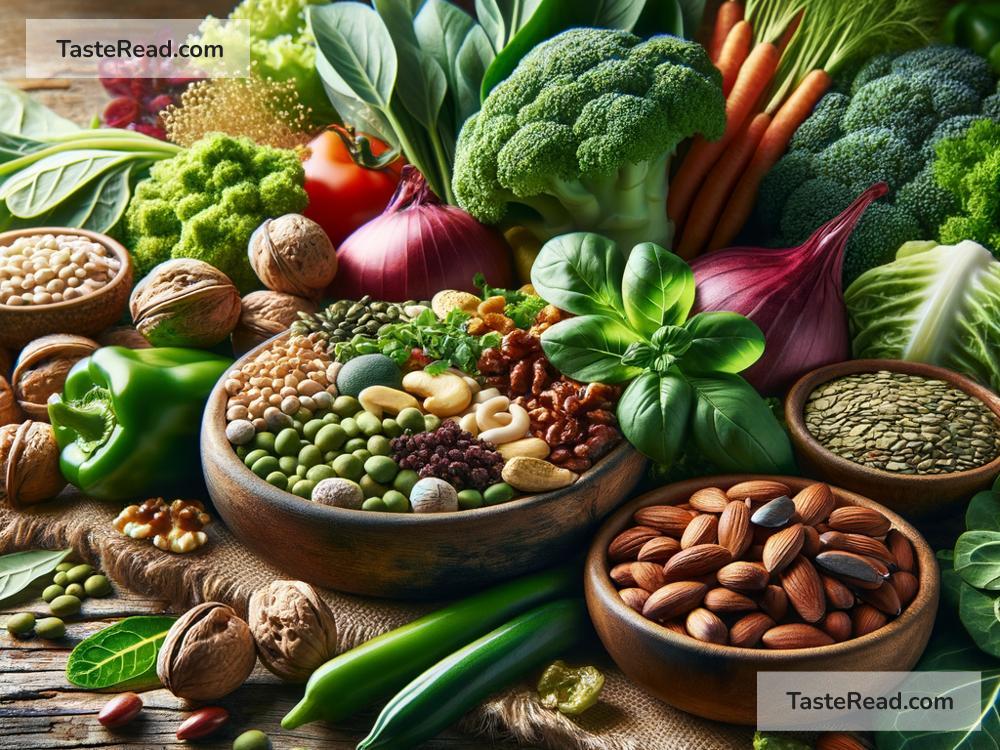Understanding the Role of Dietary Stigmasterol in Health
When it comes to staying healthy, most people know about vitamins, minerals, and protein. But there’s a lesser-known substance found in plants that might deserve some attention: stigmasterol. Although its name sounds complicated, stigmasterol is a natural compound that can play a role in keeping us healthy. So, what is it, where does it come from, and how does it help our body? Let’s dive in!
What Is Stigmasterol?
Stigmasterol belongs to a group of compounds called plant sterols, or phytosterols. You can think of plant sterols as being similar to cholesterol, but they come from plants instead of animals. While cholesterol has a bad reputation for contributing to heart disease if levels are too high, plant sterols like stigmasterol might actually help lower cholesterol and improve heart health.
In nature, stigmasterol is found in the fatty parts of plants, including seeds, nuts, vegetables, and plant oils. Soybeans, peanuts, and corn oil are especially rich in stigmasterol. Through diet, we take in small amounts of these plant sterols, which go to work in our bodies to support different functions.
How Does Stigmasterol Benefit Health?
Scientists have studied stigmasterol for its potential health effects, and the results are promising. Here are a few ways stigmasterol may benefit your body:
1. It Can Help Lower Cholesterol Levels
One of the most well-known benefits of stigmasterol is its ability to reduce cholesterol levels. Cholesterol is essential for certain body functions, but too much of it, especially bad cholesterol (LDL), can build up in arteries and increase the risk of heart disease.
Stigmasterol helps block the absorption of cholesterol from food in your intestines. When phytosterols like stigmasterol compete with cholesterol for absorption, less cholesterol makes it into your bloodstream. This might lower your total cholesterol and improve heart health.
2. Promotes Heart Health
By helping lower cholesterol, stigmasterol indirectly supports the health of your heart. High cholesterol levels are closely linked to conditions like atherosclerosis (hardening of the arteries) and heart attacks. Including foods rich in stigmasterol in your diet may reduce these risks.
In addition to cholesterol reduction, some studies suggest that stigmasterol might also have anti-inflammatory effects. Since inflammation is linked to many chronic diseases, including heart disease, this is another way stigmasterol could help protect your heart.
3. Supports Joint Health
Another possible benefit of stigmasterol is its ability to reduce inflammation in joints. People who suffer from arthritis or joint pain might find relief from plant sterols like stigmasterol because they can block inflammatory processes in the body. This might improve mobility and overall quality of life for those with chronic joint problems.
4. May Have Anti-Cancer Properties
Some early research suggests that stigmasterol might have anti-cancer properties. Scientists have observed that stigmasterol can stop the growth of certain cancer cells in lab settings, although more studies are needed to confirm these effects in humans. The antioxidant and anti-inflammatory properties of stigmasterol might play a role in reducing the risk of cancer over time.
5. Supports Skin Health
Stigmasterol is also thought to benefit the skin due to its natural anti-inflammatory and antioxidant properties. Some skincare products use stigmasterol as an ingredient because it can help protect skin cells and reduce damage from harmful substances, such as UV rays and pollution. Eating foods naturally rich in stigmasterol might contribute to healthier skin from the inside out.
How Can You Get More Stigmasterol in Your Diet?
The good news is you don’t have to make major changes to include stigmasterol in your diet. Many everyday plant-based foods already contain this compound. Here are some examples of foods that are rich in stigmasterol:
- Nuts: Almonds, peanuts, and pistachios are excellent sources.
- Seeds: Sunflower seeds and flaxseeds contain phytosterols, including stigmasterol.
- Oils: Plant-based oils, like soybean oil, corn oil, and olive oil, naturally have stigmasterol.
- Vegetables and Fruits: Certain vegetables (like broccoli and carrots) and fruits (like avocados) also contain small amounts of stigmasterol.
If you eat a wholesome diet with lots of fruits, vegetables, nuts, and seeds, you’re probably already consuming some stigmasterol without realizing it.
Are There Any Side Effects?
For most people, consuming stigmasterol through diet is safe. Since it’s a natural compound found in plants, you would need to eat a lot of these foods to reach concerning levels. That said, people who take concentrated supplements containing phytosterols should be cautious and consult a doctor, especially if they have existing health conditions or take medications.
Conclusion
Stigmasterol might not be as famous as protein or vitamins, but it’s a humble nutrient with big potential. It helps maintain healthy cholesterol levels, promotes heart health, reduces inflammation, and may even protect your joints and skin. By enjoying a plant-based diet with nuts, seeds, and fresh vegetables, you’re giving your body its daily dose of stigmasterol.
While stigmasterol is still being researched for its full effects, adding plant-based foods to your meals is a simple and natural way to improve your overall health. Your heart, joints, and skin might just thank you for it!


